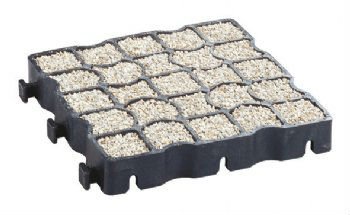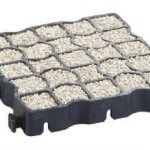Boeing (NYSE: BA), Washington State University, and the Washington Stormwater Center announced today that they will collaborate to research and develop stronger permeable pavement through the use of recycled carbon fiber composite material.
Improving permeable pavement – a porous concrete or asphalt product that allows stormwater to seep into the ground instead of running off to waterways – has been identified by the U.S. Environmental Protection Agency (EPA) as a positive step to mitigating stormwater issues in Washington state. According to the EPA, permeable pavement improves water quality by reducing flow, filtering pollutants and returning water back to the water table.
Boeing is supporting the Washington Stormwater Center through a $212,000 research grant and donation of carbon fiber composite material. The grant will support research programs at the Washington State University (WSU) Research and Extension Center in Puyallup, Wash., and on the WSU Pullman campus.
“Water is one of our most precious resources, and we need to treat it as such,” said Ursula English, vice president, Boeing Environment, Health & Safety. “We are pleased to provide recyclable composite material from our production line to assist in this vital and innovative research. Creating the opportunity to expand the use of permeable pavement is good for the environment and the communities in which we live and work.”
The project will take a two-pronged approach to improving permeable pavement. First, scientists will recycle carbon fiber composites to strengthen and reinforce porous pavement material, which is used in parking lots and side roads, but is currently too soft to be used on heavily-traveled roadways. Then the team will examine the strengthened material for toxicity, to validate that the composite material does not add pollutants into the soil or impact water quality.
“We are excited to work with Boeing on this important project,” said John Stark, director of the Washington Stormwater Center. “If we find that this material safely strengthens permeable pavement, resulting in an increase in its use, this could be a game changer in terms of reducing the impact of pollutants in stormwater on the environment.”
The use of permeable pavement is a Best Management Practice (BMP) recommended by the EPA. Washington State requires that low-impact development (techniques used to manage stormwater runoff from landscaping after a storm) must be used wherever feasible in western Washington – and permeable pavement is one avenue to achieving that goal. It’s also key to “green stormwater infrastructure,” also promoted by the EPA.
Boeing is an industry leader in global collaboration on environmental issues important to aerospace and our communities, such as researching the use of innovative technology to help solve challenges such as stormwater runoff.













